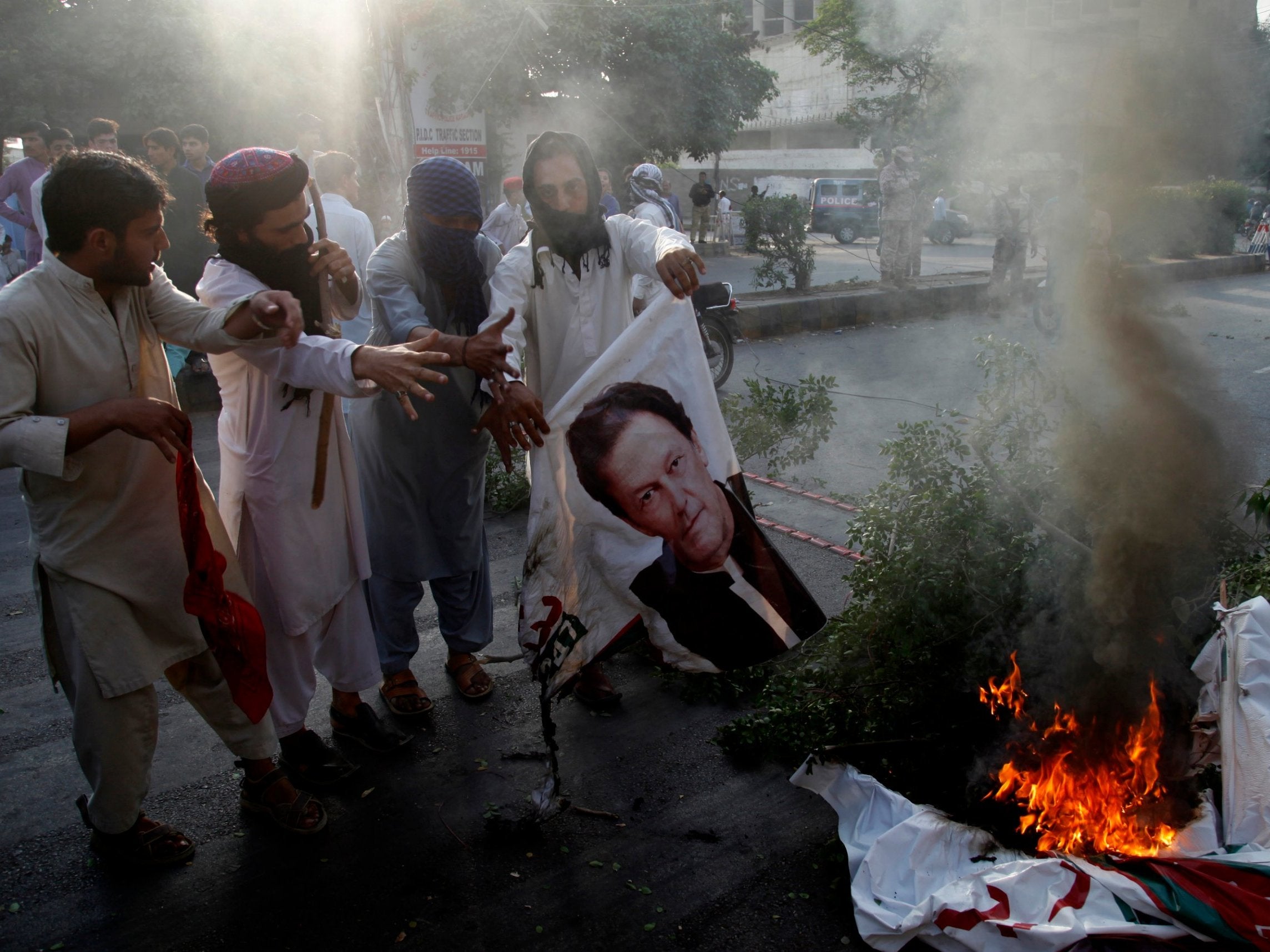Despite being innocent, Asia Bibi was forced out of her country – this is the dark truth about Pakistan's blasphemy laws
Society at large in Pakistan is not ready to have any kind of reasoned debate about the misuse of religious laws


Asia Bibi, the Christian woman who was acquitted by Pakistan’s Supreme Court in a blasphemy case last year, left the country of her birth earlier this month to seek refuge in Canada, where she has been reunited with her family.
Bibi was ultimately acquitted of blasphemy charges only after spending nine years in jail on death row following a previous guilty ruling. The decision of the Supreme Court sparked country-wide protests by hardline religious-political groups, raising fears for Bibi’s safety.
Indeed, so concerned were the authorities that when she was released from a women's prison in the Punjabi city of Multan in November, Bibi was flown to Islamabad via special aircraft, and then taken to an undisclosed location. Officials remained tight-lipped about her movement and whereabouts for security reasons.
Two months later, in January this year, the Supreme Court dismissed a review petition against her acquittal and her freedom was confirmed.
Finally, in early May, a Pakistan Foreign Office spokesman, at a weekly press briefing, confirmed that Bibi had left the country. “She is”, said the spokesman, “a free person and travelled on her independent will.”
Of course, in theory Asia Bibi – like many others acquitted of blasphemy charges – had two options. One was to stay in Pakistan; the other was to flee the country to a safer haven, probably in the West.
But to stay in Pakistan? Was this really an option?
According to Amnesty International, two individuals who were found not guilty in a blasphemy case by a high court ruling in 2012 said that they had to relocate to another town. Even there, “they avoid interacting with their new neighbours because they fear that the blasphemy accusations will become known and put their lives at risk.”
Very clearly, had Asia Bibi and her family decided to try to stay in Pakistan, they would never have been able to live in the area where they had resided prior to the accusations against her due to security concerns. Yet relocating to another city to rebuild their lives would not have been much easier – particularly when you consider the publicity caused by the case.
In truth, and contrary to the statement of the Pakistan Foreign Office, Bibi had entirely lost her freedom – as had her family. Certainly they did not have the freedom to live their lives like any ordinary citizens of Pakistan.
Wherever they might have gone in their own country, the sword of blasphemy would have continued to hang over their heads for the rest of the lives in a society which is not ready to have any kind of reasoned debate about the misuse of religious laws.

Bibi and her family might indeed have ended up like retired Justice Arif Iqbal Bhatti of the Lahore High Court, who was killed in 1997, three years after he acquitted Salamat Masih and Rahmat Masih in a blasphemy case. His killer admitted to murdering the retired justice and said that he did so because Bhatti had acquitted the accused.
No wonder then that Bibi took the second and only viable option for her, leaving the country altogether in the hope of starting her life afresh with her family in a much safer environment.
Nor is Bibi the first Pakistani to flee their home country after being acquitted of blasphemy. Younas Sheikh, a physician, was charged in 2000, acquitted in a retrial in 2003 and fled to Europe. Likewise, a young girl, Rimsha Masih, living in the suburbs of the federal capital Islamabad, was accused of blasphemy and arrested in 2012. She was acquitted at trial and subsequently granted asylum by Canada.
“She is a free person and travelled on her independent will” insisted the government of Pakistan after Bibi’s acquittal. But that notion is a charade.
On the other hand, free are the people who brought fake charges against Asia Bibi and condemned her following her acquittal in public speeches.
Free are those who called for the murder of the justices who acquitted Asia Bibi and called for mutiny within the army.
Free are those whose threats, intimidation and blasphemy allegations have halted attempts to reform and to institute procedural safeguards against the misuse of blasphemy laws.

Free are the people whose death threats forced the then member of the National Assembly, Sherry Rehman, to stop her efforts to push a bill “with the intention of preventing miscarriages of justice” in blasphemy cases.
As things stand, there is no political will in Pakistan to tackle hardliners on this vital issue, no matter who suffers from false allegations and the lynch mob. Until there is, individuals like Asia Bibi can have no freedom here – and will continue to have no choice but to seek a life elsewhere.
Join our commenting forum
Join thought-provoking conversations, follow other Independent readers and see their replies
Comments